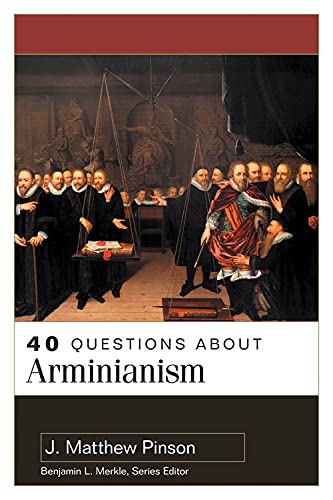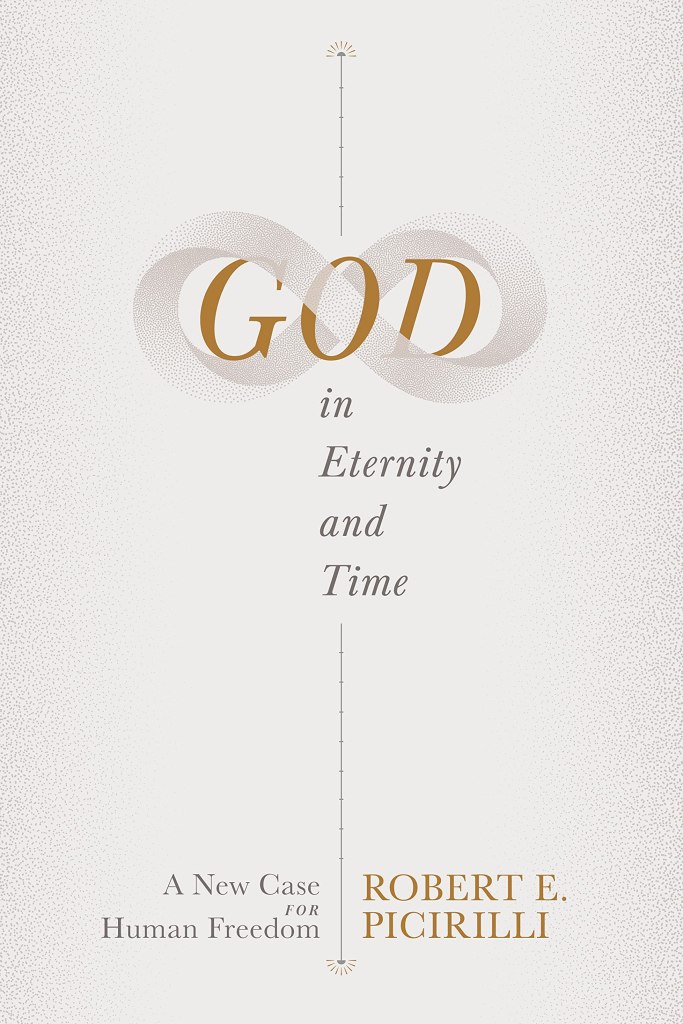This post first appeared at gospelencounter.wordpress.com
Back in 2015, Dr. Roger Olson mentioned in more than one blog post that he thought there was an “Arminian Renaissance” of sorts, with so many new books on Arminius and Arminian theology being released around that time.
It seemed to me, however, that since then, there had been somewhat of a lull. There were a few exceptions, such as Dr. Picirilli’s Free Will Revisited in 2017, W. Stephen Gunter’s Arminius and His Declaration of Sentiments and the republishing of Richard Watson’s Theological Institutes (the “Arminian antidote”, as Dr. Witherington called it) in 2018, or McCall & Stanglin’s After Arminius in 2020, but overall it seemed the renaissance was almost petering out.
No more. This new year will bring at least four more books that push back on the plethora of Calvinist literature that continues to be pumped out.
In order of their scheduled release:
1. March 29: 40 Questions About Arminianism, by J. Matthew Pinson

As part of the 40 questions series, this is one Arminians have been waiting for! At 400 pages, this book is a full 1/3 longer than Roger Olson’s Arminian Theology (which weighted in at 250 pages including endnotes & indices).
Questions will include:
- Who was Jacobus Arminius?
- How has the church interpreted God’s desire that everyone be saved?
- How is Arminianism different from Calvinism?
- Can one be both Reformed and Arminian?
- What is “universal enabling grace”?
- What do Arminians mean by “free will”?
- Do Arminians believe that God predestines individuals to salvation?
- Is it possible for a Christian to apostatize?
My one concern is that in his other writings Matthew Pinson, who comes from the Free Will Baptist tradition, tends to put more emphasis than I think is warranted on the supposed distinctions between his “Reformed Arminian” brand vs “Wesleyan Arminianism”. I hope he takes a more irenic approach in this book.
I’m especially interested in what he will say about Prevenient Grace and the question “What is ‘universal enabling grace’?”. Others in his “Reformed Arminian” camp have tended to place the emphasis on prevenient grace at the time of the gospel proclamation, but I know from Dr. Pinson’s book A Free Will Baptist Handbook (1998) that he does hold to a universal grace (his section dealing with whether infants who pass away will be saved makes this point especially clear). Perhaps his answer to this question will clear up some of the misconceptions that limit prevenient grace rather than seeing just how far and wide prevenient grace is present.
Dr. Pinson’s other books include Arminian and Baptist (2015), and A Free Will Baptist Handbook (1998). He also wrote the forward to Dr. Leroy Forlines’ Classical Arminianism (2011), and compiled Dr. Forlines apologetic writings into The Apologetics of Leroy Forlines (2019).
2. June 1: God in Eternity and Time: A New Case for Human Freedom, by Robert E Picirilli

This book seems to build on the case Dr. Picirilli made in his 2014 article “Toward a Non-Deterministic Theology of Divine Providence”. I think this book is needed, because although I found Dr. Picirilli’s article helpful, it left far too many questions unanswered. In particular, knowing Dr. Picirilli rejects Molinism (link), yet in his article seems to affirm middle knowledge/counterfactuals (using 1 Samuel 23 as an example of such), I wondered how he fits these together, or where he distinguishes his view (beyond his two short posts on the topic). I hope this book fills in those gaps.
From the Publisher website:
Divided into two sections, the first part of the book explores how God speaks and acts in creation, while the second carefully examines foreknowledge and “middle knowledge,” demonstrating the fallacy of logical arguments against freedom based on foreknowledge.”
In his endorsement, Dr. Pinson (author of the first book mentioned above) calls this book “the best discussion of these matters from an Arminian vantage point“.
Dr. Picirilli’s other books include Grace Faith Free Will (2002), and Free Will Revisited (2017).

3. August 1: Calvinism: A Biblical and Theological Critique, edited by Steve W Lemke and David L. Allen
This is an updated version of their excellent 2010 book Whosoever Will (which was one of the book’s I found most helpful when I first left Calvinism).
Not much has been posted about this one, but based on the Christianbook.com description, it will have a lineup including Arminian’s Dr. Roger Olson and Dr. Ben Witherington. I have been checking regularly to see when a full table of contents might be released, and I have heard rumors about who some of the other contributors might be, but I have not seen a Table posted anywhere yet.
4. August 11: Paul’s Use of the Old Testament in Romans 9.19-24, by Brian Abasciano
Finally, the long awaited Part-3 of Dr. Brian Abasciano’s study through Romans chapter 9 will be released in August. The first two parts were released back in 2006 and 2013, respectively, so it is very exciting to finally have the final piece.
This is another without a lot of information at this time. Really, the only information I’ve been able to find is the short notice over at the publisher’s website here.
Dr. Abasciano’s doctoral dissertation, which covers the information contained in Part-1, is available online here: Brian Abasciano, Paul’s Use of the Old Testament in Romans 9:1-9: An Intertextual and Theological Exegesis. He is also the author of Part-2: Paul’s Use of the Old Testament in Romans 9:10-18.





